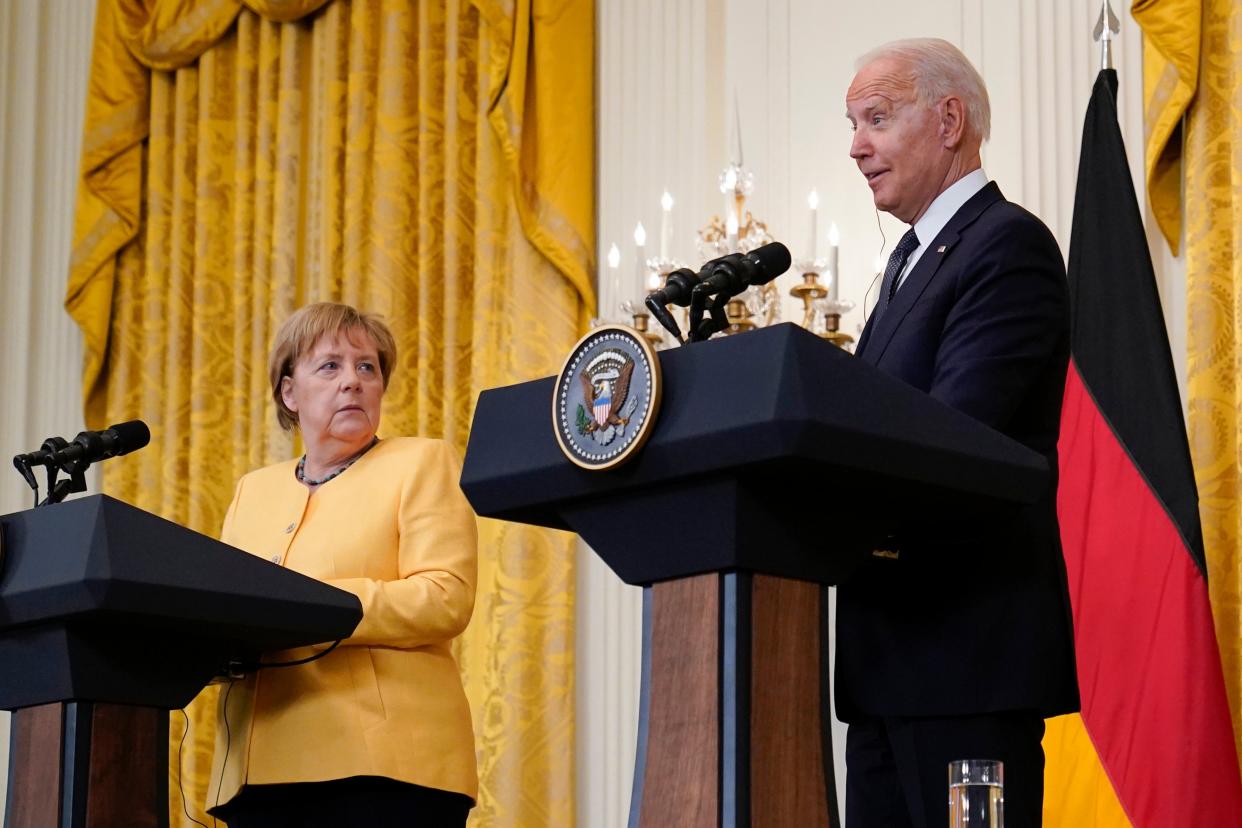US and Germany vow to unite against Russian ‘aggression’ in deal on Nord Stream 2 pipeline

- Oops!Something went wrong.Please try again later.
The Biden administration has reached a deal with Germany’s government to support the completion of the Nord Stream 2 pipeline, with the commitment that Berlin will respond to any attempts by Russia to use control of energy production as a political tool.
White House press secretary Jen Psaki confirmed the news on Wednesday during a press gaggle on board Air Force One, while stressing that the vast majority of the pipeline had been constructed before the current president took office. The US has long expressed reservations about the pipeline, which officials and lawmakers have said will draw Germany and other countries into closer relationships with Russia.
“The United States and Germany are united in their determination to hold Russia to account for its aggression and malign activities by imposing costs via sanctions and other tools”, read a joint statement from the State Department and German foreign ministry.
“Should Russia attempt to use energy as a weapon or commit further aggressive acts against Ukraine, Germany will take action at the national level and press for effective measures at the European level, including sanctions, to limit Russian export capabilities to Europe in the energy sector, including gas, and/or in other economically relevant sectors,” it continued.
The reaction was negative on Capitol Hill, where even Democrats sounded off against allowing Russia to complete the pipeline.
Wednesday’s announcement follows shortly after a White House visit from German Chancellor Angela Merkel, during which she and President Joe Biden discussed US concerns about the pipeline. In remarks to reporters after the meeting, Ms Merkel noted that she and the president had “come to different assessments as to what this project entails”.
At the same time, however, Mr Biden stressed that Washington and Berlin were "absolutely united in our conviction that Russia must not be allowed to use energy as a weapon to coerce or threaten its neighbors”.
The CEO of the Swiss-based company behind the pipeline’s construction said earlier in July that the project is estimated to be finished next month.
Once completed, the $11 billion project will carry natural gas from Russia to the European Union while bypassing Ukraine, which was invaded by Russia in 2014. The pipeline is expected to cost Ukraine’s economy billions in lost revenue annually.
Ukraine’s president, Volodymyr Zelensky, a chief opponent of the project, is set to visit the White House next month, per a press advisory on Wednesday. The White House denied that the visit was related to the pipeline deal.
Read More
O'Reilly accuser's appearance on 'The View' stopped by order
Senior House Republican Steve Scalise finally gets Covid vaccine as Delta drives up cases
Jeb Bush retweets 1960 photo of Cuban execution with misleading information

